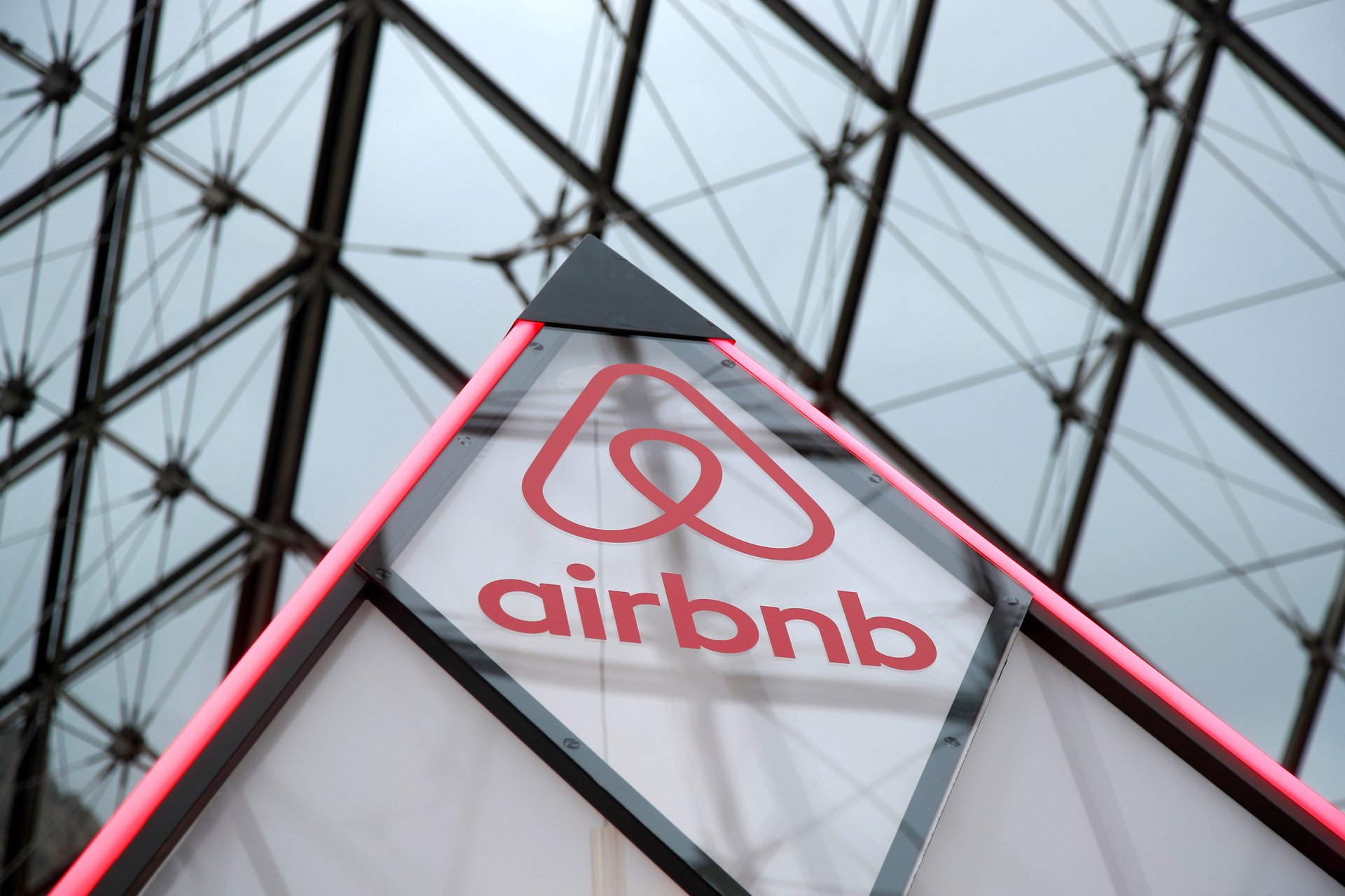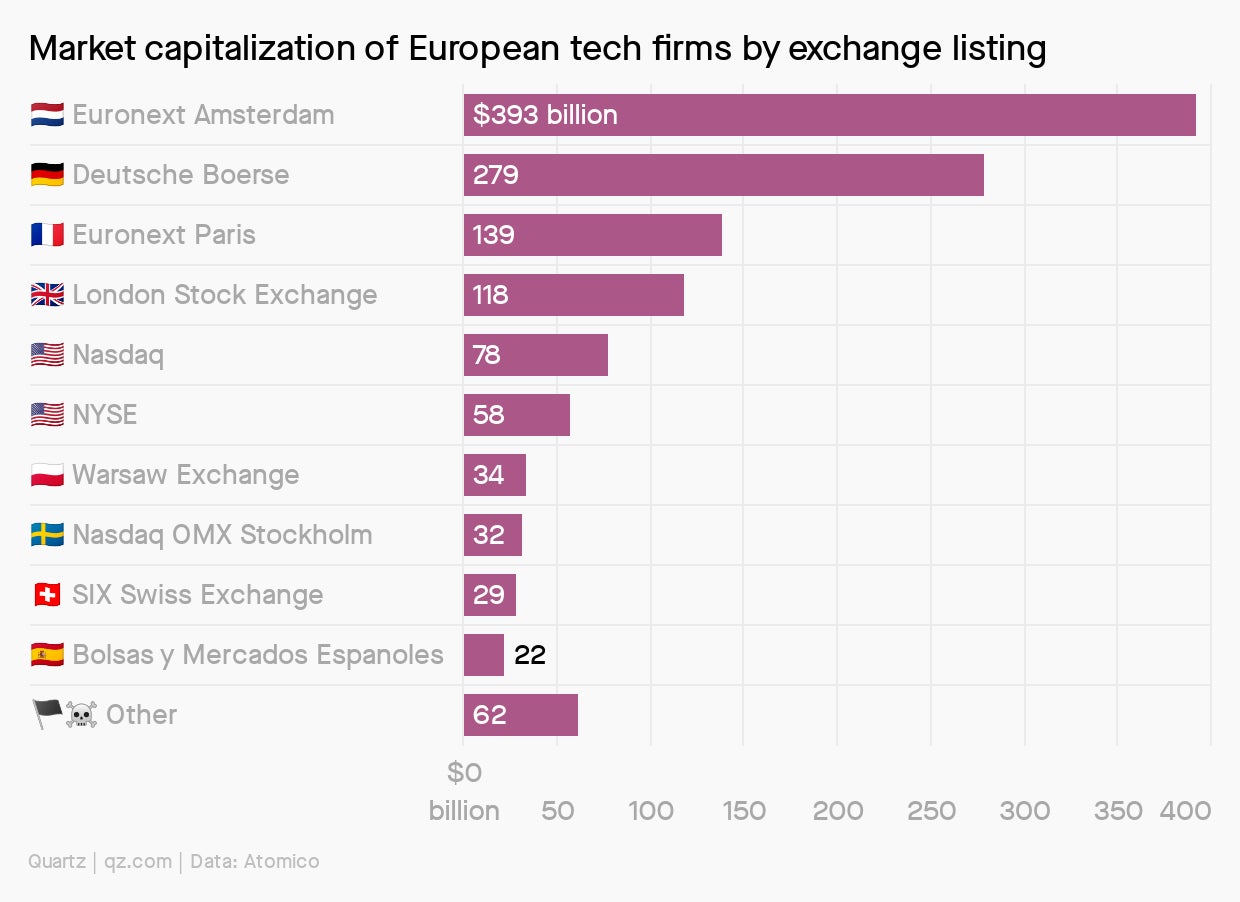Airbnb’s monster IPO, South Korean bases, bird vs. alligator
Good morning, Quartz readers!


Good morning, Quartz readers!
Here’s what you need to know
More movement on the vaccine front. The FDA will likely follow an advisory panel’s recommendation and approve the Pfizer/BioNTech vaccine within days. Meanwhile, Australia canceled orders for a homegrown vaccine after it produced false HIV-positive results in trials, and Sanofi/GlaxoSmithKline delayed the rollout of their shot after it failed to produce enough immunity among older folks.
Airbnb had a monster IPO. Investors pushed the rental booking company’s valuation north of $100 billion, doubling its listed price in a single day, and putting an exclamation mark on a record year for stock market listings.
Europe clinched a last-minute climate deal. EU member states agreed overnight to cut greenhouse gas emissions by at least 55% by 2030, ahead of Saturday’s virtual UN Climate Summit.
Disney raised the price of its streaming service. On its investor day the entertainment giant announced new Star Wars and Marvel content, though it warned Disney Plus won’t be profitable until 2024.
US regulators ordered telcos to ditch Chinese gear. The Federal Communications Commission said all carriers that get US subsidies must replace equipment from firms like Huawei and ZTE, citing espionage worries.
Mastercard blocked Pornhub. The payments company barred the use of its cards on the platform following an inquiry sparked by a New York Times story that found the site to be rife with child pornography. Visa has also suspended the use of its cards.
The US will return 12 bases to South Korea. America’s military has held the sites since the Korean War, but they will now be turned into residential buildings and maybe a hospital.
What to watch for
Today China rolls out a major digital yuan experiment, aiming to show that the virtual currency is competitive with paper—and with the country’s mobile payments giants.
💴 In the eastern city of Suzhou, a lottery will select who receives 20 million digital yuan ($3 million).
📱 Participants in the pilot will be able to pay by tapping their phones, even when there’s no internet connection.
🛍️ E-commerce company JD.com will also begin accepting the digital currency this month.
As Jane Li writes, it has become clear that China’s government is concerned about the power of private wallets like Alipay and WeChat Pay, which dominate digital payments in the country. If the digital yuan wallet can be made as convenient as those wallets, while also offering the benefits of paper, it might just be able to win over some of their users.
Charting European IPO leakage
The US produced its biggest IPO this week with Airbnb, but Europe has also been fertile ground for high-flying tech startups. The trouble is that some of the region’s biggest fish are slipping away to New York.

There are several things going on here, John Detrixhe explains. European exchanges tend to have a lot of smaller IPOs. That’s probably in part because the private market in the US is more robust, which gives entrepreneurs the scope to raise a bunch of money before facing the scrutiny of listing on a public exchange. Some European markets like London Stock Exchange also go out of their way to cater to smaller enterprises.
XPCC cotton, by the digits
On Dec. 2, the US government announced it will seize cotton and cotton products from the quasi-military organization Xinjiang Production and Construction Corps (XPCC) and its thousands of affiliates at all ports of entry.
XPCC is involved in the forced labor of the Uyghur ethnic minority in China’s Xinjiang region, part of a brutal campaign against the group that’s been likened to genocide. While US fashion retailers are careful not to overtly criticize the decision, they also argue that their own supply chain oversight precludes any wrongdoing. Marc Bain untangles the story.
80%: Approximate share of China’s cotton output grown in Xinjiang
33%: Approximate share of Xinjiang’s cotton grown by XPCC
>500 million: Number of products containing XPCC cotton estimated to enter the US annually
23%: China’s share of the world’s cotton production volume (pdf)
✦ Supporting Quartz is also a convenient way to avoid running into any paywall snags. Try it for free for seven days.
You asked about taking precautions
Officials are saying to double down on precaution efforts, but if we have a vaccine on the horizon, what good does that do?
We conferred with Quartz science editor Katie Palmer, who said: “Oh man, so so much good. A vaccine is on the horizon, but it’s still just a pinprick; while the first shots will be deployed in western countries this month, there are only enough to vaccinate a small fraction of the population. As we wait for more vaccines to be manufactured and distributed over the coming year, Covid-19 will continue to spread and kill—unless we take common-sense measures to slow its current global surge.
“Globally, there are more than 600,000 new coronavirus cases every day, more than at any point in the pandemic; about a third of those are in the US. Every day, more than 10,000 people die of Covid-19; more than 2,000 are in the US. As the New York Times reports, if that pace continues in the US, another 160,000 Americans will die by the time vaccine rollout is complete—and that’s if vaccine distribution goes off without a hitch. Wearing masks, following social distancing guidelines, and limiting indoor time outside the home are the only way to lower those projected deaths. That’s a pretty big good.”
Surprising discoveries
Ravens rival chimps’ intelligence. A scientific study pitted animals against each other in a battle of the brains and found that even young birds kept up with adult monkeys.
Honeybees are using tools to ward off hornet attacks. The tool, in this case, is poop, and bees have learned to harvest it from other animals and use it as insect repellent.
Microgravity isn’t enough to throw spiders off their web-weaving game. Arachnids in orbit will orient themselves toward a source of light and keep spinning perfect webs.
A Florida bird swallowed an alligator whole. Not to be outdone by Florida Man, the heron gulped down an entire juvenile alligator on camera.
Meanwhile, humans are taking pictures with beer cans. An art student fashioned the can into a lens and used it to take one epic, 2,953-day-exposure shot of the sun arcing through the sky.
Our best wishes for a productive day. Please send any news, comments, new Marvel movies, and six-packs of art supplies to [email protected]. Get the most out of Quartz by downloading our iOS app and becoming a member. Today’s Daily Brief was brought to you by Annabelle Timsit, Alex Ossola, Susan Howson, and Nicolás Rivero.